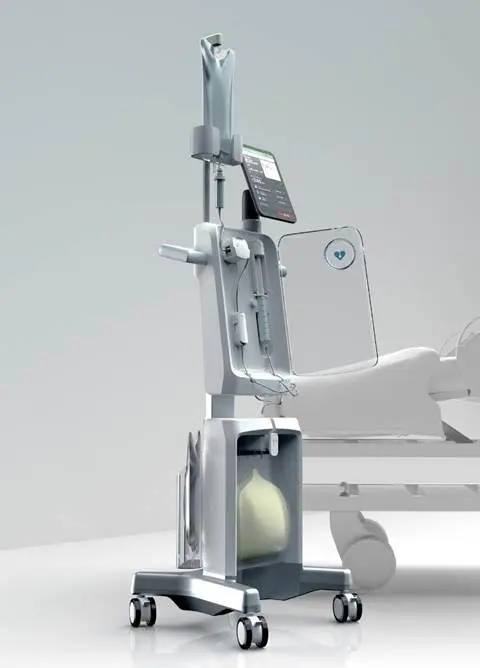Acute Decompensated Heart Failure and the Reprieve System
What is Acute Decompensated Heart Failure and Fluid Volume Overload?
Acute decompensated heart failure (ADHF) is the sudden or gradual onset of the signs or symptoms of heart failure (difficulty breathing, leg or feet swelling, and fatigue) requiring unplanned office visits, emergency room visits, or hospitalization. Specifically, ADHF is caused by a rapid onset of fluid volume overload.
Five million patients a year are admitted with Heart Failure diagnoses in the U.S. alone, with 40% of those patients being admitted with worsening heart failure symptoms.¹ ADHF is a common and potentially serious cause of acute respiratory distress.
ADHF is one of the leading admission diagnoses around the world.² Readmissions and events are common with 20-25% of patients readmitted within 30 days and the age-adjusted risk for all-cause mortality is tripled compared with non–HF patients.³

The Reprieve System
How Does it Work?
Find the right dose, fast:
Real-time, continuous urine output informs the dose-finding algorithm to personalize and optimize the diuretic dose in the first hour.
Maintain the right dosing:
Real-time monitoring automatically recommends when to escalate/end therapy to limit inefficient time on diuretics.
Keep the kidney happy (and diuretic resistance under control):
When needed, saline replacement is continuously titrated to maximize urine output and maintain renal function. Enabling faster, safer, more complete fluid loss.